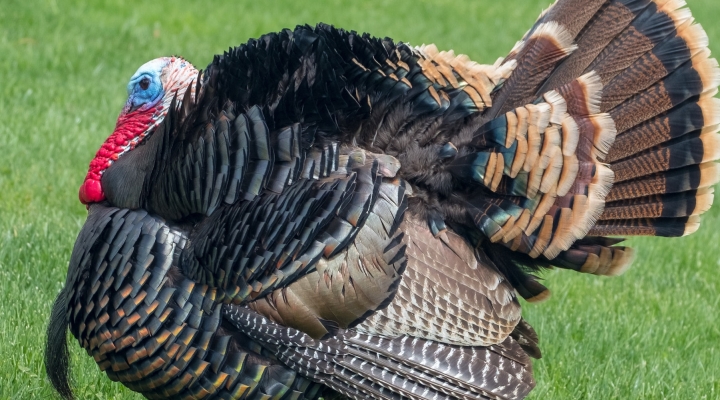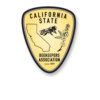RALEIGH, N.C. — Ambassador Katherine Tai, the United States Trade Representative, toured the NC State Talley Turkey Education Unit on Tuesday, Sept. 26, a visit that highlighted a recent trade agreement with India that opens up a significant new market for North Carolina’s turkey producers.
As part of the agreement, India reduced tariffs on certain U.S. products, including frozen turkeys.
“I know North Carolina is a powerhouse in terms of turkey production and we’re constantly looking for opportunities for our growers and producers,” Tai said. “India has not been a traditionally large market for our turkey exports, in part due to its tariff structure. This will be an opportunity for the United States and North Carolina in particular to showcase turkeys and turkey meat to the people of India. It’s also a part of the contribution that the United States can make to food security and addressing food insecurity around the world.”
Agriculture is the state’s top industry, generating more than $100 billion annually. North Carolina ranks first in the nation for turkey meat production and total poultry production. The poultry industry accounts for nearly 150,000 jobs across more than 5,000 farms in North Carolina.
“North Carolina is a leader in turkey production,” said Garey Fox, dean of NC State’s College of Agriculture and Life Sciences. “The agreement that Ambassador Tai has developed with India could provide a major advantage for us within the state of North Carolina moving forward. It’s going to potentially expand turkey production in the state. We’re excited about the opportunity and how that fits within some of the initiatives that we have at NC State. We’re re-invigorating our food animal initiative to also support the food animal industry in North Carolina.”
The ambassador, who was accompanied by North Carolina Gov. Roy Cooper at the facility off Lake Wheeler Road, learned about research being conducted in partnership with and for the benefit of the state’s producers and the turkey industry.
“Much of the research that goes on at our university is directly transferred to the producers of the state through Extension and that’s one of the reasons that our turkey production is so outstanding in North Carolina,” said NC State Extension Director Rich Bonanno. “It’s attention to detail at every level. The types of turkeys, the nutrition, the handling, the care are all important to make the industry what it is. Research and Extension once again partner to produce something that will have a worldwide impact. In this case a trade agreement with India for frozen turkeys.”
While most turkeys in the grocery store are sold under familiar brand names, Bonanno pointed out that family farms are the backbone of the turkey industry in North Carolina.
“Even though we have businesses that they contract with to buy the birds and process the birds and get them to markets in this country and beyond, it’s really family farmers that are raising the animals,” Bonanno said. “New markets allow our farmers to be more profitable, and bring their kids into the business. The whole animal industry has blossomed and really been a way to help all farmers collectively save their businesses.”
Tai heard from NC State Extension turkey specialist Jesse Grimes about the university’s scientific and humane approach to research.
“As a faculty member, I have to go to the university to get an animal care plan that has to be approved,” Grimes said. “And when we start a project, I write out a protocol and our department head has to sign off on it. Everyone knows what’s going on with these birds. Everything is transparent and supervised.”
Tai indicated vigorous, careful and documented research can be a key element in trade agreements.
“That kind of accountability and then clearly the rigor in terms of scientific studies that is a part of our agricultural process is an exemplary aspect to our production,” she said. “That we have this academic-to-industry partnership is really important. We produce on the basis of science, we regulate on the basis of science risk, and we are promoting that kind of approach around the world.”
No visit to the Lake Wheeler facility would be complete without an introduction to Chocolate and Chip, the North Carolina-raised birds that received the traditional presidential pardon last Thanksgiving and are now comfortably housed at NC State.
The ambassador enjoyed meeting the famous turkeys, and even tried to take a selfie with one of them. But mostly, she appreciated the excellence of the work being done by NC State and the state’s producers to provide vital nutrition for consumers across the state, country and world.
“We are incredibly proud of our excellent product, excellent sources of protein, although I know Chocolate and Chip will never end up on a plate,” she said. “What we really want is for this to help grow the turkey industry and produce benefits here so that our producers can support other aspects of the community.”
In addition to frozen turkeys, the trade agreement with India involved frozen duck, fresh blueberries and cranberries, frozen blueberries and cranberries, dried blueberries and cranberries, and processed blueberries and cranberries.
–Simon Gonzalez, N.C. State University







